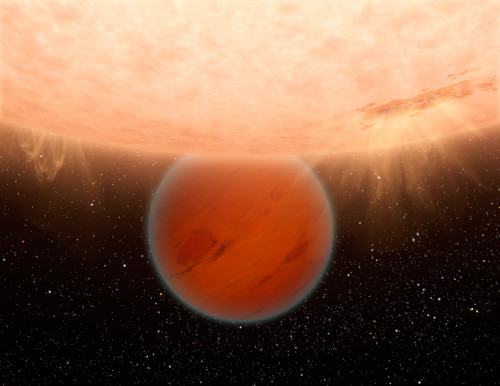Modal Logic and Science Fiction

Modal logic extends classical logic by adding one or more modes. If there's only one mode, it's usually denoted . Curiously, can have a wide variety of interpretations, and different interpretations motivate different axioms for how behaves. Modal logic is not one system but an infinite number of systems, depending on your choice of axioms, though a small number of axiom systems come up in application far more than others.
For a proposition p, p is often interpreted as necessarily p" but it could also be read, for example, as it is provable that p. Thanks to Godel, we know some theorems are true but not provable, so p might be true while p is false.
Kripke semantics interprets p to be true at a world" w if p is true in all worlds accessible from w. The rules of a logic system transfer to and from the set of models for that system, where a model is a directed graph of worlds, and an oracle (a valuation function") that tells you what's true on each world. Axioms for a logic system correspond to requirements regarding the connectivity of all graph models for the system.
All this talk of what worlds are accessible from other worlds sounds a lot like science fiction. For example, if the planet Vulcan is accessible from Earth, and p is the statement The blood of sentient beings is red," then p is true on Earth, but not necessarily true on Earth since it's not true on Vulcan, a world accessible from Earth.
Modal logic defines by
p = p.
For a proposition p, p can be read as possibly p." A proposition p is true on a world w if there is some world accessible from w where pis true.
So in the Star Trek universe, if p is the statement Blood is green" then p is false on Earth, and so is p, but p is true because there is a world accessible from earth, namely Vulcan, where p is true.
You could have all kinds of fun making up rules about which worlds are accessible from each other. If someone from planet x can reach planet y, and someone from planet y can reach planet z, can someone from x reach z? Sounds reasonable, and if all worlds have this property then your Kripke frame is said to be transitive. But you could create a fictional universe in which, for whatever reason, this doesn't hold.
Is a world accessible from itself? Depends on how you define accessibility. You might decide that a non-space faring world is not accessible from itself. But if every world is accessible from itself, your Kripke model is reflexive. If a Kripke frame is reflexive and transitive, the corresponding logic satisfies the S4 axioms. (More on this in the next post.)
Johan van Benthem gives an example in his book Modal Logic for Open Minds that's scientific but not fictional. If you define a world" to be a point in Minkowski space-time, then the worlds accessible from a given world are in that world's future light cone. Propositions in this logic satisfy
p p
and in fact the logic satisfies a system of axioms known as S4.2.
More modal logic postsThe post Modal Logic and Science Fiction first appeared on John D. Cook.